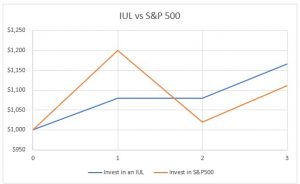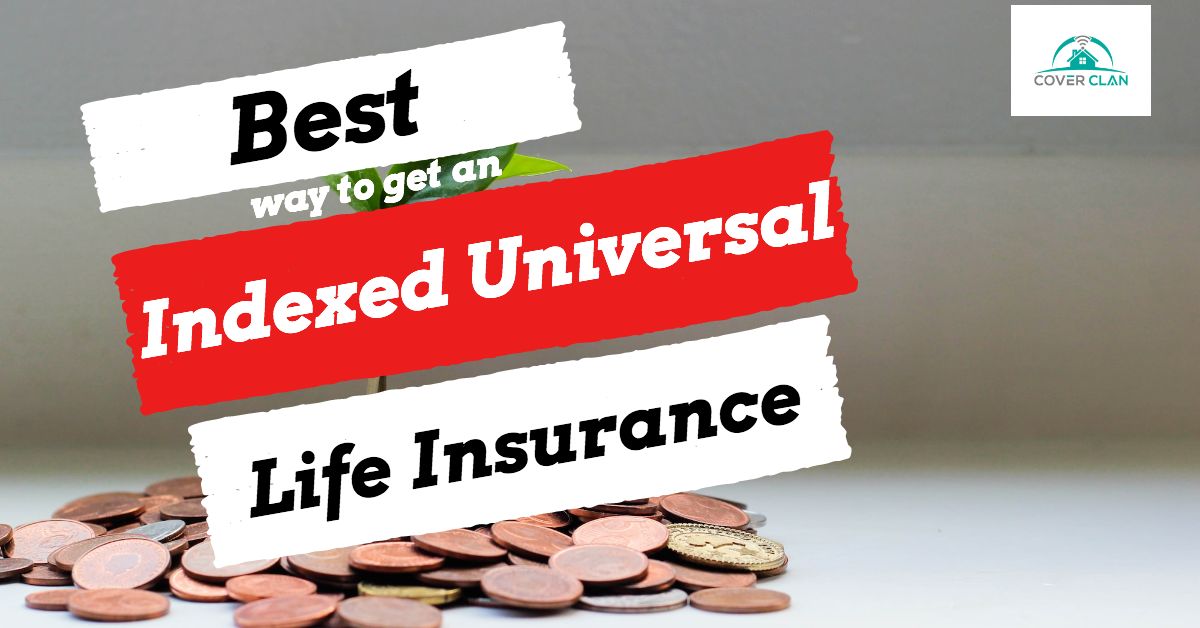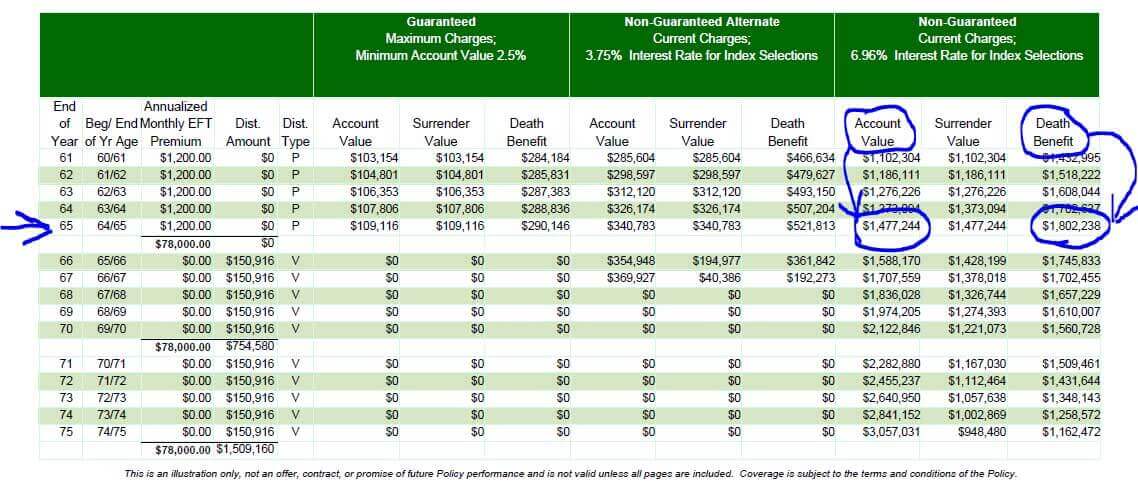All Categories
Featured
Table of Contents
1), commonly in an effort to beat their group averages. This is a straw male debate, and one IUL individuals enjoy to make. Do they compare the IUL to something like the Vanguard Overall Securities Market Fund Admiral Show to no load, a cost proportion (ER) of 5 basis factors, a turnover proportion of 4.3%, and a phenomenal tax-efficient record of circulations? No, they contrast it to some terrible proactively taken care of fund with an 8% load, a 2% EMERGENCY ROOM, an 80% turn over proportion, and a dreadful record of short-term funding gain distributions.
Common funds typically make annual taxable distributions to fund owners, also when the value of their fund has decreased in value. Shared funds not only need income coverage (and the resulting yearly tax) when the common fund is increasing in value, but can also impose income tax obligations in a year when the fund has gone down in value.
You can tax-manage the fund, gathering losses and gains in order to decrease taxed circulations to the capitalists, but that isn't in some way going to transform the reported return of the fund. The possession of shared funds may need the mutual fund proprietor to pay estimated taxes (whole life index insurance).

IULs are very easy to position to make sure that, at the owner's fatality, the recipient is not subject to either earnings or estate tax obligations. The exact same tax obligation decrease strategies do not function nearly as well with shared funds. There are various, usually costly, tax obligation traps associated with the moment acquiring and marketing of common fund shares, catches that do not relate to indexed life insurance policy.
Chances aren't very high that you're mosting likely to go through the AMT due to your mutual fund distributions if you aren't without them. The rest of this one is half-truths at ideal. While it is real that there is no revenue tax obligation due to your heirs when they inherit the proceeds of your IUL plan, it is also real that there is no earnings tax due to your heirs when they inherit a mutual fund in a taxed account from you.
The Cash Value In An Indexed Life Insurance Policy
The federal estate tax exemption limit is over $10 Million for a couple, and growing yearly with rising cost of living. It's a non-issue for the substantial majority of medical professionals, much less the rest of America. There are far better methods to avoid inheritance tax problems than getting financial investments with reduced returns. Shared funds might trigger income taxation of Social Safety advantages.

The development within the IUL is tax-deferred and might be taken as free of tax revenue via lendings. The plan owner (vs. the mutual fund manager) is in control of his/her reportable earnings, thus allowing them to lower or also eliminate the taxation of their Social Safety and security benefits. This is great.
Here's another very little issue. It's real if you buy a mutual fund for say $10 per share right before the circulation date, and it distributes a $0.50 distribution, you are then going to owe taxes (possibly 7-10 cents per share) although that you haven't yet had any type of gains.
Yet in the end, it's really concerning the after-tax return, not just how much you pay in taxes. You are going to pay more in taxes by utilizing a taxed account than if you buy life insurance policy. But you're additionally most likely mosting likely to have more money after paying those taxes. The record-keeping needs for owning shared funds are considerably much more complicated.
With an IUL, one's documents are maintained by the insurance provider, duplicates of yearly statements are mailed to the owner, and distributions (if any) are amounted to and reported at year end. This set is additionally kind of silly. Of program you ought to maintain your tax records in situation of an audit.
Is Iul Good Investment
All you have to do is shove the paper right into your tax obligation folder when it appears in the mail. Hardly a factor to buy life insurance policy. It's like this guy has never invested in a taxable account or something. Common funds are commonly component of a decedent's probated estate.
Additionally, they undergo the delays and costs of probate. The proceeds of the IUL plan, on the other hand, is constantly a non-probate distribution that passes outside of probate straight to one's named beneficiaries, and is therefore not subject to one's posthumous lenders, undesirable public disclosure, or similar delays and prices.
We covered this under # 7, however simply to summarize, if you have a taxed common fund account, you must place it in a revocable count on (or even easier, make use of the Transfer on Death classification) to avoid probate. Medicaid disqualification and lifetime earnings. An IUL can give their owners with a stream of revenue for their whole life time, no matter of how much time they live.

This is useful when arranging one's affairs, and transforming assets to revenue before an assisted living home confinement. Common funds can not be transformed in a similar manner, and are generally taken into consideration countable Medicaid possessions. This is an additional stupid one advocating that inadequate individuals (you understand, the ones who need Medicaid, a government program for the poor, to pay for their nursing home) ought to make use of IUL instead of mutual funds.
Iul Companies
And life insurance looks awful when compared relatively versus a retirement account. Second, people who have money to acquire IUL above and past their pension are mosting likely to have to be awful at handling money in order to ever before get approved for Medicaid to spend for their nursing home costs.
Persistent and terminal disease rider. All policies will certainly allow a proprietor's simple access to cash money from their policy, usually forgoing any type of surrender penalties when such people experience a serious ailment, need at-home treatment, or come to be restricted to an assisted living home. Common funds do not give a similar waiver when contingent deferred sales costs still relate to a common fund account whose owner requires to offer some shares to money the costs of such a remain.
Life Insurance Term Vs Universal
You get to pay more for that benefit (motorcyclist) with an insurance policy. Indexed global life insurance coverage gives fatality advantages to the beneficiaries of the IUL owners, and neither the proprietor neither the recipient can ever before shed money due to a down market.
I definitely do not require one after I get to financial independence. Do I want one? On average, a purchaser of life insurance coverage pays for the real price of the life insurance coverage benefit, plus the expenses of the policy, plus the revenues of the insurance business.
Are Iul A Good Investment
I'm not completely certain why Mr. Morais tossed in the entire "you can not lose cash" once again right here as it was covered rather well in # 1. He just desired to duplicate the most effective selling factor for these points I intend. Once more, you don't lose small dollars, yet you can lose real bucks, as well as face serious chance cost due to low returns.

An indexed universal life insurance policy owner may trade their plan for a totally various policy without setting off earnings tax obligations. A mutual fund owner can not move funds from one shared fund company to one more without marketing his shares at the previous (therefore setting off a taxable event), and repurchasing new shares at the last, frequently subject to sales costs at both.
While it holds true that you can trade one insurance coverage for another, the factor that individuals do this is that the very first one is such a dreadful policy that also after acquiring a brand-new one and going via the early, adverse return years, you'll still appear ahead. If they were offered the ideal policy the very first time, they should not have any desire to ever exchange it and undergo the early, unfavorable return years once again.
Latest Posts
Equity Index Life
Index Universal Life Insurance Tax Free
Universal Way Insurance